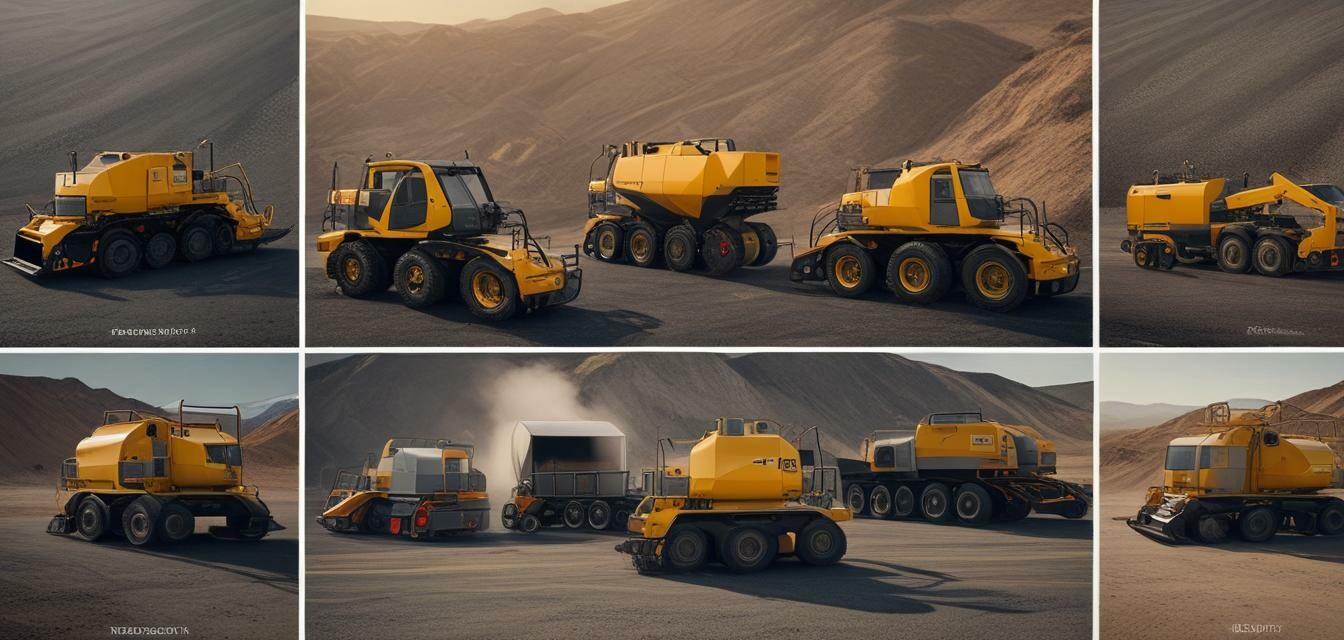
Analyzing the Best Asphalt Mixing Equipment
Key Takeaways
- Asphalt mixing equipment is essential for achieving high-quality asphalt pavements.
- Different models cater to various project sizes and specifications.
- Understanding the components and functionality of asphalt mixing equipment is crucial for optimal performance.
- Always consider your specific needs and project requirements when selecting equipment.
- Continuous research and reviews help in making informed choices for paving supplies.
In the world of asphalt paving, selecting the right mixing equipment can greatly influence the quality and longevity of your projects. This article will explore the best asphalt mixing equipment available in the market, examining each option's specifications, ideal use cases, and overall effectiveness. Whether you are a contractor managing large projects or a DIY enthusiast working on smaller jobs, understanding these machines will help you make informed decisions.
Types of Asphalt Mixing Equipment
Asphalt mixing equipment comes in different forms, each designed to suit specific requirements of the paving process. Here are the primary types:
- Batch Mixers
- Continuous Mixers
- Drum Mixers
Batch Mixers
Batch mixers are commonly used for smaller projects where precision is necessary. They mix asphalt in batches, allowing for more control over the mix's composition.
Continuous Mixers
These mixers operate continuously and are preferred for large-scale operations. They can produce higher quantities of asphalt without pausing between cycles.
Drum Mixers
Drum mixers combine drying and mixing processes in one device. Ideal for specific production ranges, they save time and fuel.
Comparative Overview of Asphalt Mixing Equipment
| Type | Best For | Production Rate | Cost |
|---|---|---|---|
| Batch Mixers | Small to Medium Projects | 30-120 tons/hour | Low to Medium |
| Continuous Mixers | Large Projects | 150-400 tons/hour | Medium to High |
| Drum Mixers | Mid to Large Projects | 150-300 tons/hour | Medium to High |
Factors to Consider When Choosing Asphalt Mixing Equipment
Selecting the right mixing equipment involves considering various factors:
- Project Size: Determine the scale of your project to decide on the production capacity needed.
- Material Specifications: Ensure the equipment can handle the specific asphalt mix required.
- Budget: Assess your budget constraints before making a selection.
- Portability: If your projects are spread out, consider mobile options for easier transport.
- Maintenance: Factor in long-term maintenance and parts availability.
Common Brands of Asphalt Mixing Equipment
Various reputable brands manufacture asphalt mixing equipment, each known for particular strengths. Some commonly recognized brands include:
- Brand A
- Brand B
- Brand C
Safety Considerations with Asphalt Mixing Equipment
Maintaining safety while operating asphalt mixing equipment is crucial. Here are essential safety practices:
- Always wear proper safety gear, including gloves and goggles.
- Ensure all machinery is well-maintained and in working order.
- Follow all operational guidelines and safety protocols.
- Provide proper training to all operators to handle the equipment safely.
Conclusion
Choosing the best asphalt mixing equipment is a vital step that can significantly influence the success of your paving project. By understanding the different types of mixers available, the factors to consider, and the safety measures to take, you will be well-equipped to make an informed decision. For more information on other paving supplies, feel free to check out our asphalt mixes and additives, and be sure to explore our array of paving tools and sealants and crack fillers.
Key Takeaways
- Understanding the different types of asphalt mixing equipment and their best applications is critical for optimal results.
- Thoroughly assess project needs before selecting equipment to ensure effectiveness and efficiency.
- Implement safety measures to protect operators and maintain equipment integrity.

